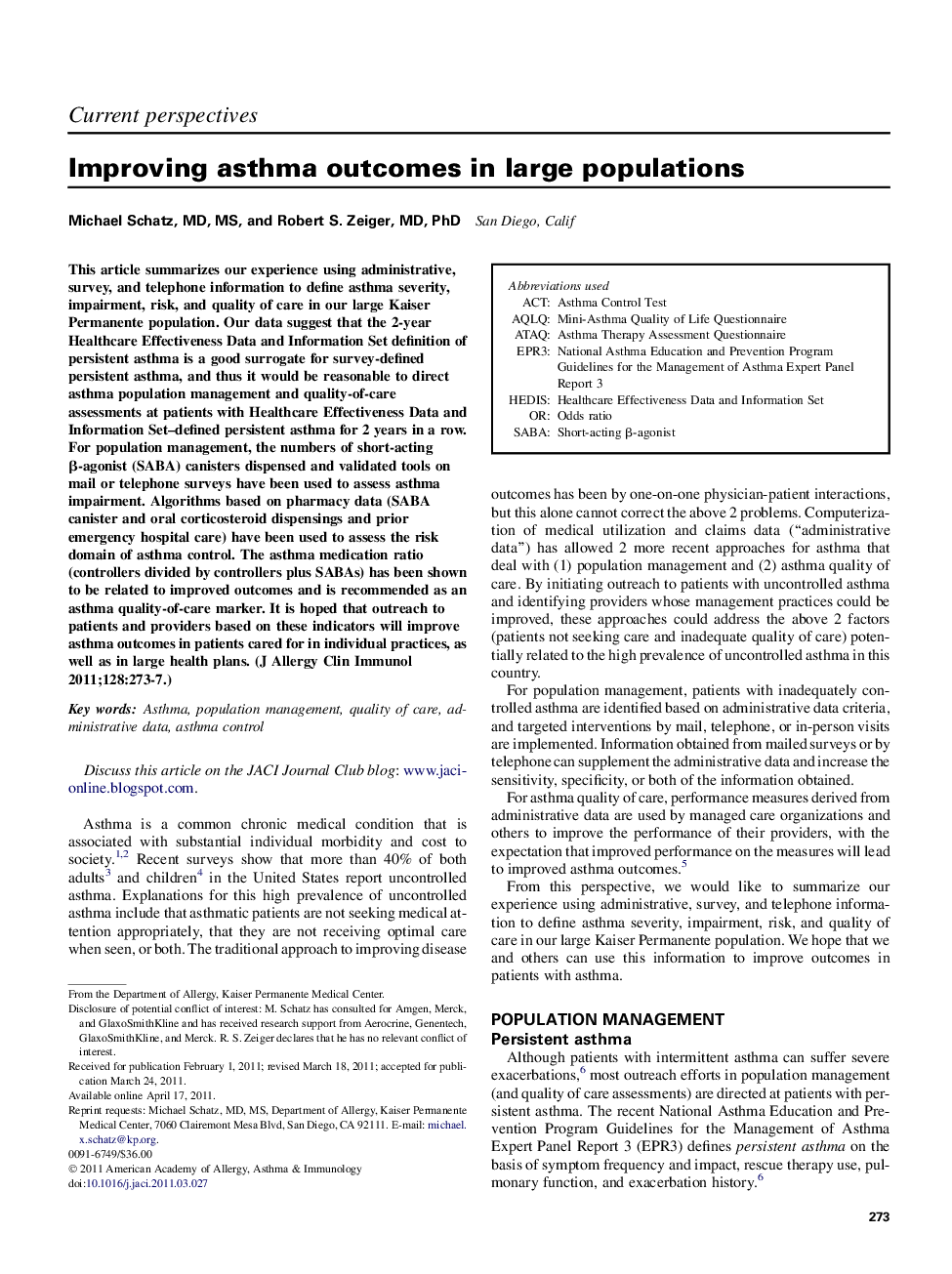| کد مقاله | کد نشریه | سال انتشار | مقاله انگلیسی | نسخه تمام متن |
|---|---|---|---|---|
| 3199234 | 1201910 | 2011 | 5 صفحه PDF | دانلود رایگان |

This article summarizes our experience using administrative, survey, and telephone information to define asthma severity, impairment, risk, and quality of care in our large Kaiser Permanente population. Our data suggest that the 2-year Healthcare Effectiveness Data and Information Set definition of persistent asthma is a good surrogate for survey-defined persistent asthma, and thus it would be reasonable to direct asthma population management and quality-of-care assessments at patients with Healthcare Effectiveness Data and Information Set–defined persistent asthma for 2 years in a row. For population management, the numbers of short-acting β-agonist (SABA) canisters dispensed and validated tools on mail or telephone surveys have been used to assess asthma impairment. Algorithms based on pharmacy data (SABA canister and oral corticosteroid dispensings and prior emergency hospital care) have been used to assess the risk domain of asthma control. The asthma medication ratio (controllers divided by controllers plus SABAs) has been shown to be related to improved outcomes and is recommended as an asthma quality-of-care marker. It is hoped that outreach to patients and providers based on these indicators will improve asthma outcomes in patients cared for in individual practices, as well as in large health plans.
Journal: Journal of Allergy and Clinical Immunology - Volume 128, Issue 2, August 2011, Pages 273–277